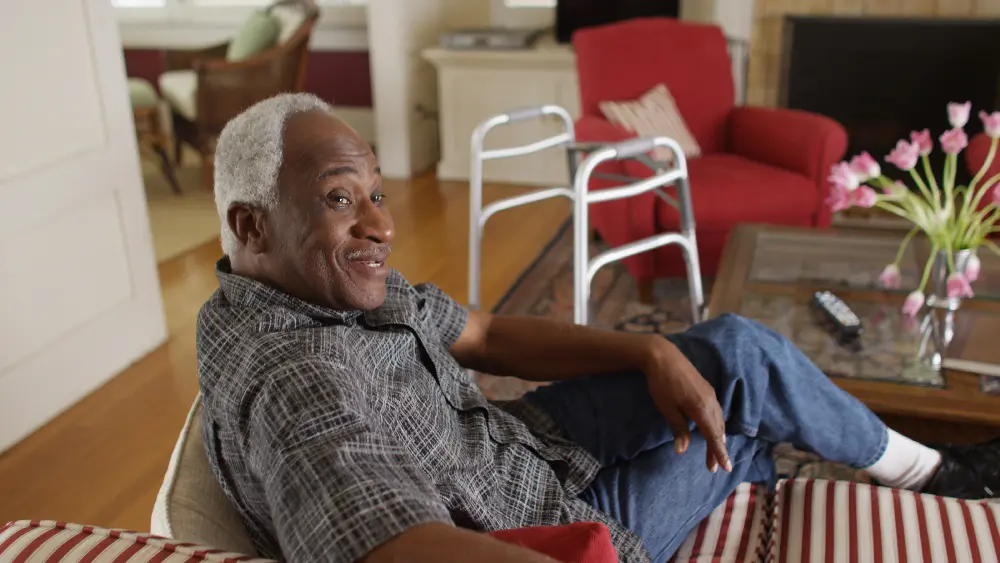
Services We Provide

What Is Hospice?
Hospice is a philosophy of curated care and service for people with a terminal illness along with providing a support system for their loved ones. Hospice is about providing the best quality of life during the final stage of life.
Compassionate Care Hospice not only provides skilled pain management for the patient, but also emotional support, spiritual services, and grief support for family members following the death of a loved one. Hospice cares for the person, not the disease, while supporting life and focusing on compassion, comfort, dignity and quality of life during the remaining months, weeks, days, and hours of life. Hospice neither hastens nor slows the natural progression of life.
Compassionate Care Hospice provides a dedicated team of professionals from a vast array of disciplines to your home: doctors, nurses, spiritual counselors, social workers and volunteers. Our experienced team specializes in assisting the patient and family through the transition from designed care to comfort care. During this phase, no active or specialized therapies are undertaken. Patients are allowed the opportunity to transition with lessened or no pain, and with as much dignity, respect and independence as their condition will accommodate.

Hospice Facts:
-
Hospice is not a physical location, like a hospital or nursing home.
-
Hospice focuses on quality of life; it is most beneficial during the final six months of
life expectancy. -
Hospice is not a “death bed” service for people in the last 48 hours of life.
-
Hospice gives the right of truth to everyone involved, so they may accurately know what
is happening to them, and so they may navigate how they wish to spend the remaining time
in the most meaningful ways. -
Hospice is not a place to send dying people to and keep them ignorant of exactly what is
happening to them. -
Hospice is for people who have any and all terminal illnesses.
-
Hospice is not just for cancer patients.
-
Hospice is a realistic way to deal with a fatal diagnosis.
-
Hospice offers hope, dignity and comfort.
-
Hospice is not giving up on hope or help.
-
Hospice is a family-oriented program that helps families and/or friends care for their
loved one in the sanctuary of their own homes. -
Hospice is not a substitute for the family or the family’s care, but rather a much
needed addition. -
Hospice is covered by Medicare, Medicaid and several other insurance providers.
-
Hospice is not expensive.
-
Hospice neither hastens nor prolongs death.
-
Hospice lets nature run its course.
-
Hospice is not euthanasia.

When to Consider Hospice:

Are You or a Loved One Facing a Life-Limiting Disease or Illness, Such As:
- Cancer
- Heart Disease
- Alzheimer’s/Dementia
- Respiratory Diseases
- Neurologic Diseases
- Liver/Renal Failure
- Stroke or Coma
- AIDS/HIV

What are the Patient’s Goals and Wishes:

Understanding the Practice:

Is the Patient Showing Signs of Decline and Losing Quality of Life?
Factors to Consider if it’s Time for Hospice:
- Has a doctor certified the patient has six months or less to live?
- Are curative treatments no longer effective or are they creating side effects, undue suffering or discomfort?
- Does the patient no longer wish to be hospitalized?
- Is the patient losing the ability to perform the activities of daily living (eating, dressing, personal hygiene, maintaining continence, transferring)?
- Has the patient had multiple hospitalizations or emergency room visits?
- Has the patient lost 10% or more of body weight?
- Is the patient’s physical activity or mental alertness declining?

Patients Live Longer and More Comfortable with Hospice:
There is no time limit for a patient to receive hospice benefits. Hospice is for patients who are expected to live six months or less, but can be extended if the patient continues to meet the criteria. If our team determines that a patient’s prognosis is extended, we will discharge the patient from our service and carefully transition the patient with an appropriate plan in place.

Bereavement Care – Emotional Support:
Our goal is to empower families and loved ones to recognize and develop skills to manage grief, while learning to adjust to the passing of a loved one. Our program aims to prevent the onset of grief related physical and mental health issues.
We revere the human experience, we offer support services for the family after the loved one has departed. We are reachable every hour of every day. A dedicated hospice care nurse is always available by phone with the ability to expedite further medical treatment. Our multi-disciplinary staff is ready to respond whenever needed for a medical or emotional emergency.

